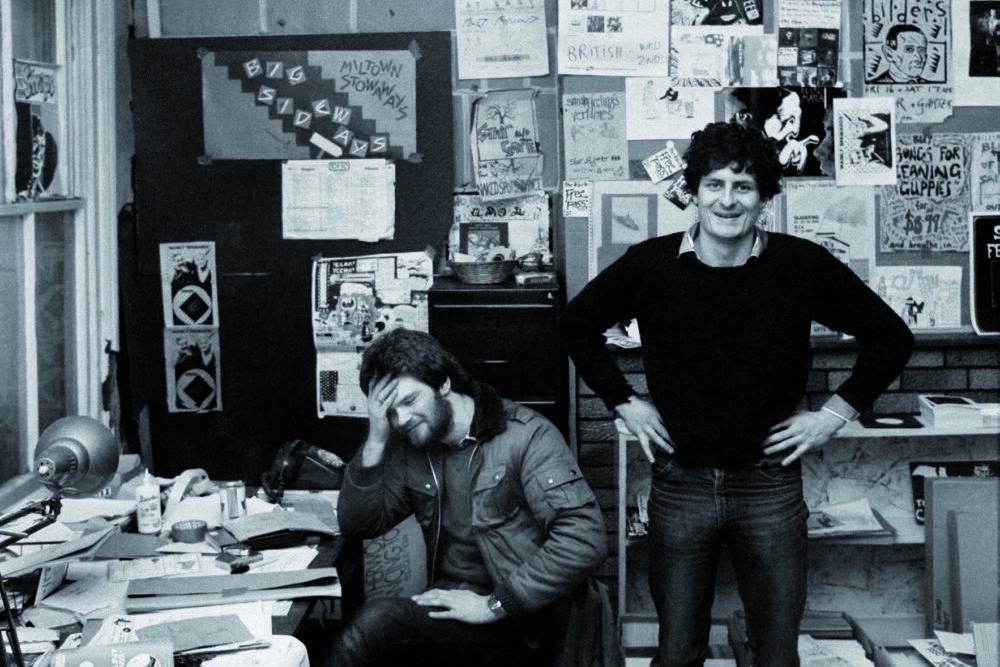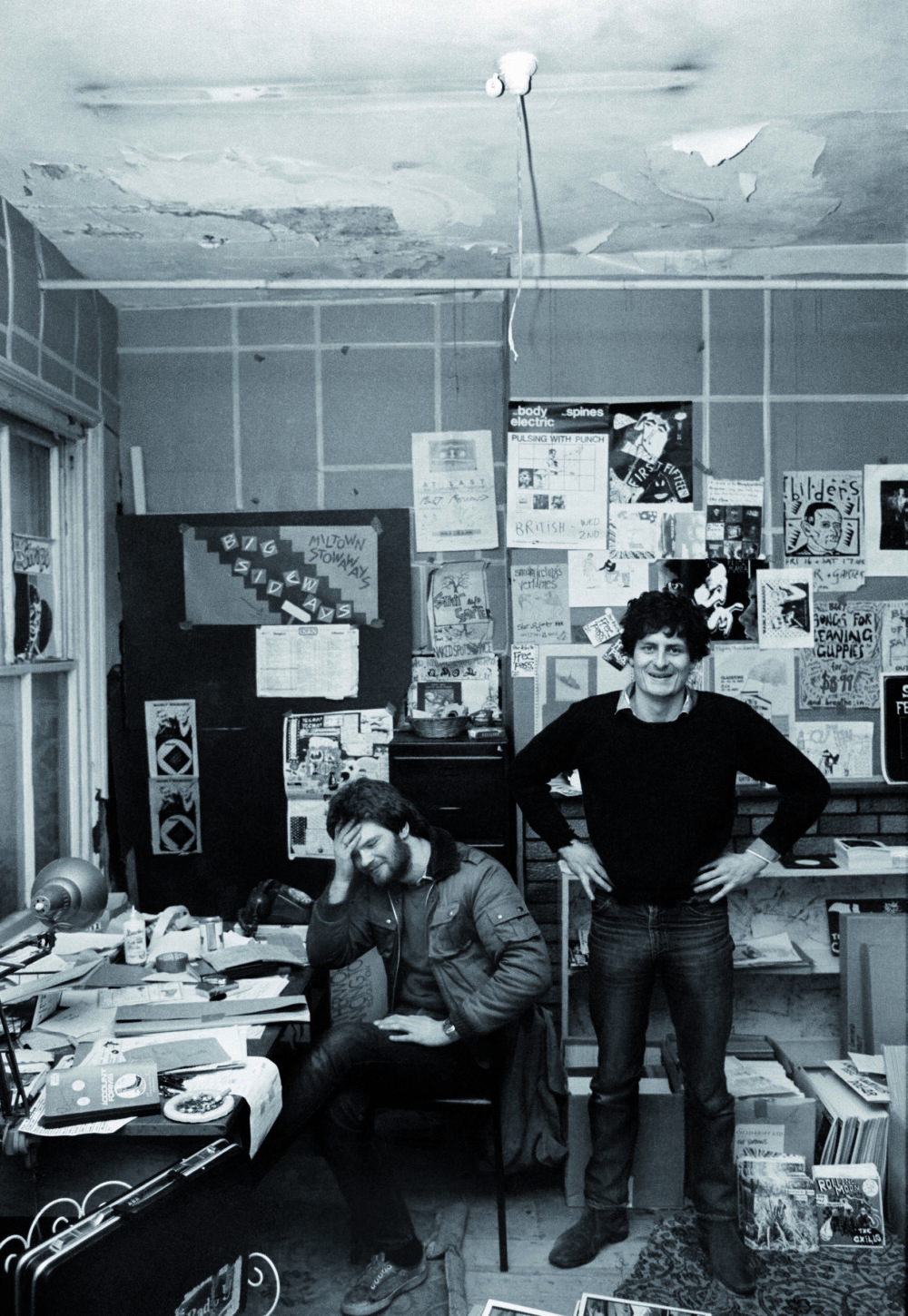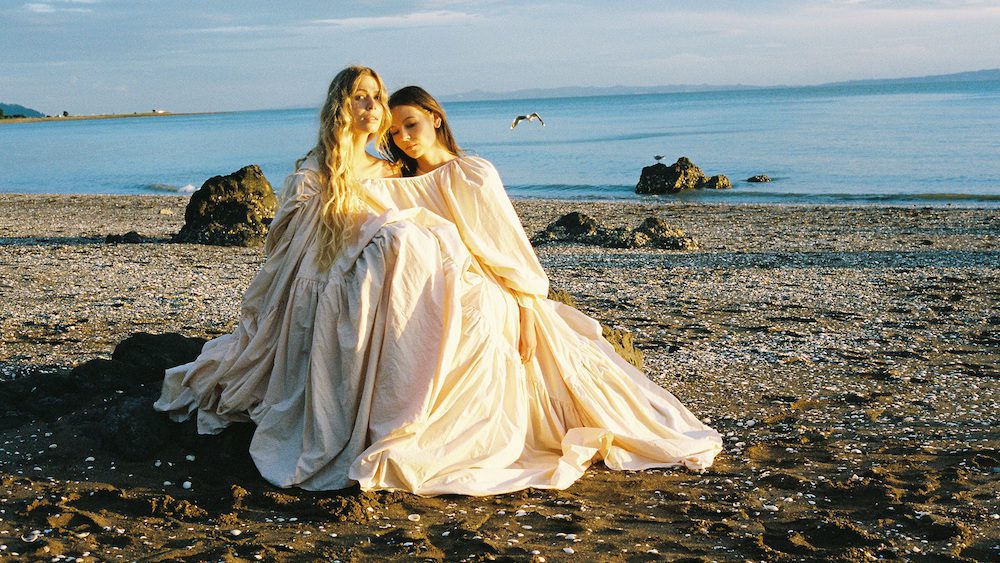

This story begins a long time ago, in a faraway land. Not Narnia, that’s another story. But, like the C.S. Lewis classic chronicles, this story has all manner of magical creatures, wild wardrobes and wondrous landscapes.
Forty years ago, Roger Shepherd founded New Zealand’s Flying Nun Records in Christchurch, the largest city on the Southern island. It was at a time when the university city of Dunedin was providing fertile ground for post-punk and indie pop acts to form and flourish. He’d worked in record stores throughout high school and when he began university, his dedication to working in record stores trumped lectures and textbooks.
“I’d dropped out of university… I don’t know if it was just me, but the music was just so exciting at that time that university became a sideshow, really,” he tells Audiofemme. “My musical experience is that of a music retailer. I never learned a musical instrument, I was never in a band, I can’t sing, I can’t keep time, I’m not a dancer.”
In the early 1980s, post-punk bands were only beginning to emerge. Their frenetic, DIY attitude to making music and performing was catnip to a young, impressionable New Zealand boy who’d grown up with his parent’s Beatles and Bob Dylan albums on high rotation.
“When I was about 17, we’d driven to Dunedin in my incredibly unreliable car. I can’t believe that we even attempted it,” he remembers. “We patched up that for the five hour drive to see this band called The Enemy and they were a kind of punk rock band that had a ferocity about them that was unmatched by anything we’d had any experience of; devastatingly good. The support band was The Clean, playing their first support show, and they were ramshackle.”
He returned to Christchurch, where years later The Clean would show up in 1981. Shepherd’s freshly minted record label was waiting with open doors for them.
“The Clean turned up in ’81 and played, and they were just so clearly the best band in the world,” he says. “You have that moment, when you’re young. They were just so devastatingly good, everyone was gobsmacked. I was up on that stage, I think, before they’d even finished playing. I had agreed to release that Pin Group single, but I hadn’t released anything else, and there was nothing else in sight, but I just knew that I had to do something with those guys and they were open to that.”
The fledgling label struck out with some memorable and chart-recognised releases, making an early impact that would imprint the label into the hearts and earholes of New Zealanders for decades to follow, unbeknownst then to Shepherd. The first release, “Ambivalence” by Pin Group, was followed by “Tally Ho” by The Clean, the latter of which snuck onto the New Zealand charts at nineteen. It was an unexpected boost for the freshly founded label, providing publicity and income.
The idea, 40 years ago, of record stores in regional cities was a novelty. Until then, major record labels with a purely commercial, mainstream agenda had their offices in cities like London, Los Angeles, Berlin and Sydney.
“One of the reasons I set up was that there was no other label in the south island for independent-minded bands,” Shepherd explains. “Nationally, there were only a couple… There was major record companies releasing records by really boring, middle-of-the-road bands, and we weren’t part of that world. The major record companies had offices here, mainly in Auckland, but they wouldn’t have had much of a budget for local stuff.”
Over the decades, the label was sold, merged into other labels, and finally bought back by Shepherd. In 1990, Australia’s Festival Records bought half-ownership into Flying Nun, before merging it into Mushroom Records in 2000. Six years later, Warner acquired it when it bought out Festival Mushroom Records.
“I didn’t really sell it,” Shepherd clarifies. “I was more pushed out. Mushroom were business partners and I think they were in the process of selling up to News Corp and I was part of the wash up from that, really, because I was in London at that stage. The Mushroom director that I was aligned to – he went, so the writing was on the wall for me. They pushed me out, I didn’t sell. If I’d sold, I would have had some money to show for it, but I really didn’t.”
Shepherd and his wife remained in London for another decade from 1995, raising their two young children, before returning to Wellington for his wife’s job in 2005. Happily a “house husband” at that time, he’d had no plans to return to the music industry until he was approached by Warner to compile a 25th Anniversary Box Set, which lead him to buy back the label in 2009.
“I found myself reconnecting with a lot of that music, really relating to it and liking it, and thinking about the people who made it. So I asked [Warner], would you sell me Flying Nun back? After a very convoluted process… they said yes, we’ll sell this back to you. Fifteen years later, it’s still going strong.”
The upstart 20-year-old who leapt on stage to sign The Clean back in 1981 was appointed an Officer of the New Zealand Order of Merit (ONZM) for services to the music industry in the 2018 Queen’s Birthday Honours. It was bittersweet, since Shepherd’s mother had developed dementia by that time and couldn’t appreciate that her punk-rock loving son had been approved by the Queen.
Shepherd is humble and seemingly nonplussed by the recognition. There’s an audible brightness and fervour to his voice when he is talking about the label and the artists, though. This is the beating heart of Flying Nun.
“As far as sound or an aesthetic, the label has become less identifiable with a number of music scenes. In the early days, we were closely aligned with what was happening with Dunedin and to a lesser extent, Christchurch. We’ve become less scene-centric and now it’s a bigger, broader community and that community idea is more of a description of what Flying Nun is now – likeminded people rather than likeminded guitar sounds,” he says. “We didn’t know what a community was 40 years ago but obviously now, that’s what we’re part of – creative, independent music makers and the audience, as well. That’s the label’s strength. It’s less about the sound, it’s a nebulous thing.”
Matthew Bannister of Sneaky Feelings wrote a memoir of the scene and Flying Nun records, to which his band was an early signing, called Positively George Street: A Personal History of the Sneaky Feelings and the Dunedin Sound, released in 1999.
Bannister and the band met at the University of Otago in Dunedin. In 1981, a year after forming, they played at a hotel in Christchurch, where Roger approached the band. “He was offering us whisky, he had a white Jaguar, so we thought ‘this guy looks like somebody,’” Bannister recalls. “In Dunedin in 1980, the idea of releasing a record was our wildest dream so to have a record company come to our gig – that is, Roger – and say ‘I like you guys, do you wanna make a record?’ was the greatest thing ever, really.”
Sneaky Feelings featured on The Dunedin Sound: two 12” EPs that also featured The Verlaines, The Chills and The Stones, with a band on each side. “It sold reasonably well [despite the] weird format,” says Bannister. “It sold several thousand copies, which in New Zealand is pretty good.”
“The label has gone on to become pretty well known overseas, sort of famous I guess in a sort of indie way,” Bannister reflects. “The Verlaines, The Chills, The Bats have done pretty well. New Zealand has become known as a place that produces a distinctive style of music. I think that’s a great achievement.”
“We’ve always quite liked noisy stuff,” confirms Shepherd. “Quite early on, it wasn’t just jangly guitars, there was a lot of other stuff happening. That idea of just one sound early on… it’s always been broader than that.”
Godzone, by Auckland alt-rockers Sulfate, is still making big waves on Melbourne community radio after Flying Nun released the record in September. “Sulfate fit in with that whole world, that raucous, different way to make noisy music,” says Shepherd. “On the other hand, we do Reb Fountain who’s got a bit of a folky background and she’s been really successful in the last year. Vera Ellen, a young person from Wellington… I think it’s a good time for women in music.”
One thing that’s changed since the label’s inception is the way they discover new bands. “We spend quite a bit of time on Bandcamp, mainly because we’re just interested – not hard-nosed trawling through the internet!” says Shepherd. “The thing that’s stayed consistent is that we’re just fans of music, really. It’s never been ‘we’re gonna sign this band and take over the world’. We want to sell enough records to cover the costs.”
And despite worldwide pressing delays, Flying Nun’s commitment to vinyl records remains, for good reason. “We thought that was going to save us, the streaming thing, but it’s terrible for us and terrible for our acts. It generates income for the major record labels and artists with that mass pop online presence. For us, it’s almost not worthwhile doing the admin,” Shepherd admits. “Our business is based on vinyl, and even then, the margins aren’t great. They’re expensive to make, expensive to ship. [But] we split the profit on the budget 50/50 with the act. It’s a mature business that we’re operating and we know what we’re doing, what we’re dealing with.”
40 years and you haven’t peaked, Flying Nun. Happy anniversary.
Follow Flying Nun Records on Twitter and Facebook for ongoing updates.


